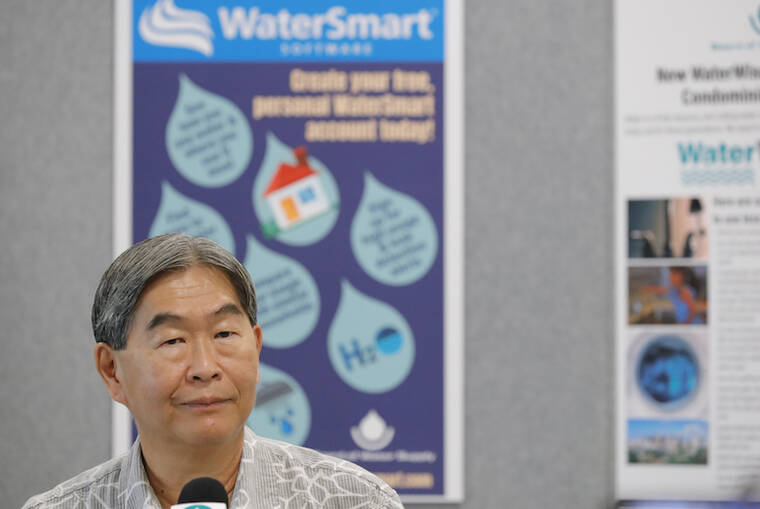The Board of Water Supply is urging all Oahu residents to reduce their water consumption by 10% as demand outpaces supply.
“We are asking… our customers, especially in our Honolulu system and Aiea and Halawa water system to reduce their water use voluntarily by 10%,” said Ernie Lau, the board’s chief engineer at a press conference today. “The rest of our customers on the island are not impacted, but we do ask them to save water and conserve water. And if they can achieve the 10% reduction islandwide, that would be a great thing for our resource.”
The board shut down its Aiea and Halawa wells after being alerted of possible contamination from the Navy’s Aiea-Halawa shaft, where diesel fuel levels were reported more than double the state Department of Health’s limits for drinking water. The Pentagon earlier this week announced the U.S. Department of Defense will permanently shut down and defuel the Navy’s massive fuel tank facility that leaked petroleum into the Navy’s drinking water system that serves approximately 93,000 people.
The shut down of BWS’s wells and less than normal rainfall has affected the supply of water for customers, Lau said. BWS officials said today they found rising levels of chloride in Beretania wells due to additional pumping to help make up the loss of supply from the Halawa shaft. According to a BWS statement, rising chloride levels indicate stress on the health of the island’s water sources.
“Reduced rainfall prevents adequate recharge of Oahu aquifers. Even if the weather brings more rain later this year, the island’s sources need time to rebuild storage capacity,” according to a statement.
BWS officials are urging Oahu consumers to be mindful of their daily activities by adopting practices that avoid wasting water such as taking shorter showers, avoiding a running faucet, and watering the lawn or garden before 9 a.m. or after 5 p.m.
“Our responsibility is to care for our existing customers,” Lau said. “And in Honolulu, we serve, I would say, over 400,000 people—businesses, residences, critical facilities like hospitals, schools, important government facilities all depend on the water that we supply to our community,” he said. “We need to keep the equation balanced between supply and demand here, and we need everyone’s kokua to do that.”
This is a breaking news story and will be updated as soon as more information becomes available.




